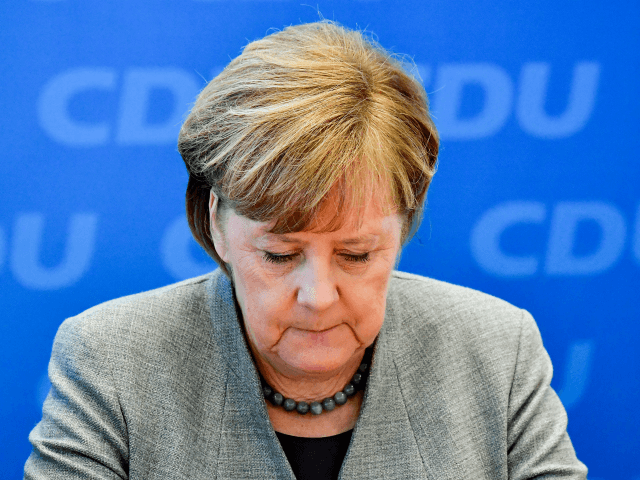The rate of infection for the Chinese coronavirus in Germany has begun to rise following Chancellor Angela Merkel’s decision to ease the lockdown measures that were introduced to stem the spread of the virus.
The Robert Koch Institute (RKI), the federal agency tasked with managing the coronavirus pandemic, found that the reproduction rate of the illness — the approximate number of people an infected person passes the virus to — has spiked from .83 on Friday to 1.13 on Sunday.
The increase in the so-called ‘R number’ above 1 means that the rate of infection is increasing in the country rather than declining. The RKI did caution that there is some degree of lag in numbers, therefore it is unclear whether the easing of the lockdown restrictions contributed to the spike in the infection rate, Deutsche Welle reports.
Last week, Chancellor Angela Merkel announced that the government would begin to allow certain businesses, religious services and schools to begin opening. When she made the announcement the rate of infection was at .65 per cent.
“We have achieved the goal of slowing the spread of the virus…because our citizens have behaved responsibly and saved the lives of others,” Merkel said.
The German Chancellor had previously warned that should the rate of infection reach 1.1 by October the country would “reach the capacity level of our health system, with the assumed level of intensive care beds.”
A senior German Social Democrat MP and a professor of epidemiology, Karl Lauterbach, told The Times that he is expecting a second wave of the coronavirus after witnessing people take to the streets following the easing of the restrictions.
“It can be expected that the R rate will go above one again and we will return to exponential growth,” he said.
“At least that corresponds to everything I saw in Cologne. The easing has been poorly prepared,” Lauterbach lamented.
Despite the easing of restrictions, thousands of protestors took to the streets across the nation, accusing the government and medical officials of inciting panic and infringing upon their liberties by imposing the lockdown.
Some 3,000 people gathered in Munich and thousands more rallied in Stuttgart. Similar protests popped up in Berlin and other cities as well.
Police arrested at least 130 people during the protests in Berlin, after the gatherings turned into violent clashes with officers, with protestors hurling bottles and the police.
Follow Kurt on Twitter at @KurtZindulka

COMMENTS
Please let us know if you're having issues with commenting.